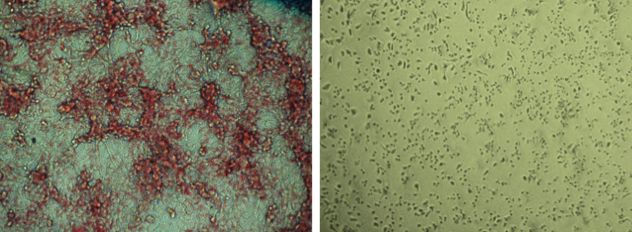Cancer Treatment Update: Halting Fat Synthesis In Cells Could Stop The Growth Of Cancer

Can fat be good sometimes? A new study shows that it may actually stop cancer from growing.
Researchers at the Salk Institute have found a way to stop cells from creating their own fat molecules and building plasma membranes, which can stifle cancer's growth. The study shows that the newly-discovered process halts the molecular building blocks that cancer requires to multiply, according to a news release.
"Cancer cells rewire their metabolism to support their rapid division,"said Salk Professor Reuben Shaw. "Because cancer cells are more reliant on lipid synthesis activity than normal cells, we thought there might be subsets of cancers sensitive to a drug that could interrupt this vital metabolic process."
In the study, researchers were able to disrupt the cells' lipid assembly line process using an enzyme called Acetyl-CoA Carboxylase. Also known as ACC, it works by shutting off a critical player in lipid synthesis.
In both animal models of cancer and transplanted human lung cancer cells, tumor mass shrank by roughly two-thirds with the ACC inhibitor — which has been dubbed ND-646. These results were far more effective than originally expected.
"This is the first time anyone has shown that this enzyme, ACC, is required for the growth of tumors and this represents compelling data validating the concept of being able to target fat synthesis as a novel anticancer approach," Shaw explained. "The implications are that we have a very promising drug for clinical trials for subtypes of lung cancer as well as liver and other types of cancer. This represents a new weapon in the arsenal to fight cancer."
Source: Eichner LJ, Kolar MJ, Brun SN, Lombardo PS, Van Nostrand JL, Hutchins A, et al. Inhibition Of Acetyl-CoA Carboxylase Reduces Fatty Acid Synthesis And Inhibits Tumor Growth Of Non-Small Cell Lung Cancer In Preclinical Models. Nature Medicine. 2016.
Read more:
‘Good’ Fats Fight Obesity And Type 2 Diabetes: Benefits Of ‘Beige Fats’
Immunotherapy Cancer Treatment Could Kill Cells Infected With HIV
Published by Medicaldaily.com



























